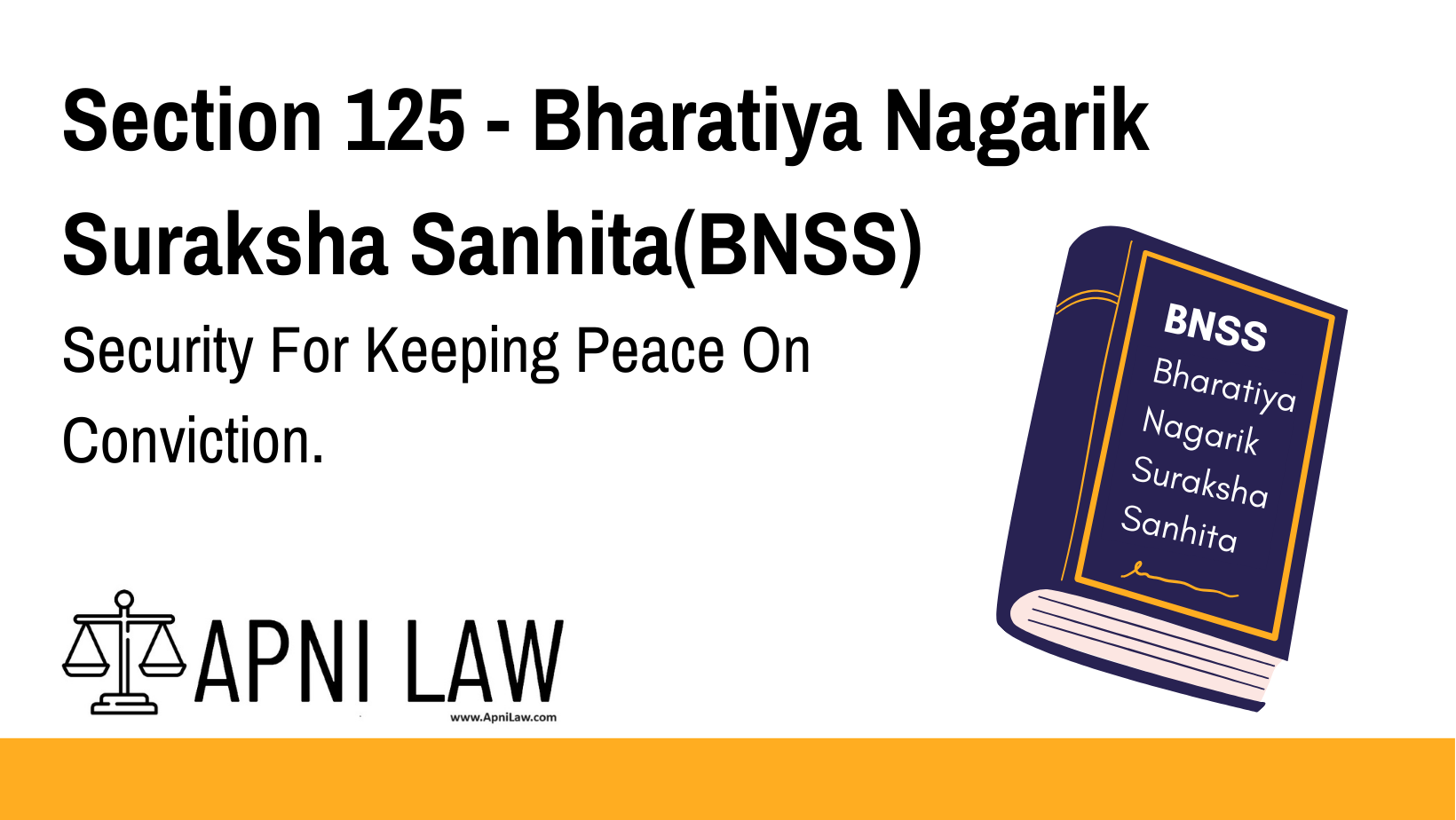Code
(1) When a Court of Session or Court of a Magistrate of the first class convicts
a person of any of the offences specified in sub-section (2) or of abetting any such offence
and is of opinion that it is necessary to take security from such person for keeping the
peace, the Court may, at the time of passing sentence on such person, order him to execute
a bond or bail bond, for keeping the peace for such period, not exceeding three years, as it
thinks fit.
(2) The offences referred to in sub-section (1) are—
(a) any offence punishable under Chapter XI of the Bharatiya Nyaya
Sanhita, 2023, other than an offence punishable under sub-section (1) of section 193
or section 196 or section 197 thereof;
(b) any offence which consists of, or includes, assault or using criminal force or
committing mischief;
(c) any offence of criminal intimidation;
(d) any other offence which caused, or was intended or known to be likely to
cause, a breach of the peace.
(3) If the conviction is set aside on appeal or otherwise, the bond or bail bond so
executed shall become void.
(4) An order under this section may also be made by an Appellate Court or by a Court
when exercising its powers of revision.
Explanation:
This section empowers a Court of Session or a Magistrate of the first class to require a person to provide security for keeping peace on conviction. This is done by making the convicted person execute a bond, with or without sureties, for a period not exceeding three years.
The purpose of this section is to prevent future breaches of the peace by individuals who have been convicted of crimes that are likely to lead to such breaches.
The offenses covered by this section are:
- Offences punishable under Chapter VIII of the Bharatiya Nyaya Sanhita, 2023 (except for offences under sections 191, 194, and 195)
- Offences involving assault, criminal force, or mischief
- Offences of criminal intimidation
- Any other offence that caused or was intended or likely to cause a breach of the peace
If the conviction is later overturned on appeal or otherwise, the bond becomes void.
An Appellate Court or a Court exercising revisional powers can also make an order under this section.
Illustration:
A person is convicted of assaulting another person. The court, while sentencing him, feels that he may repeat the offense and disrupt peace. The court, therefore, orders him to execute a bond with sureties for a period of two years to ensure that he keeps the peace.
Common Questions and Answers:
- Q: Who can order a bond under this section?
A: A Court of Session, a Magistrate of the first class, an Appellate Court, or a Court exercising revisional powers.
- Q: What are the offences covered under this section?
A: The offenses are listed in sub-sections (2) of the code.
- Q: What is the maximum period for which a bond can be ordered?
A: The maximum period is three years.
- Q: What happens to the bond if the conviction is set aside?
A: The bond becomes void.









